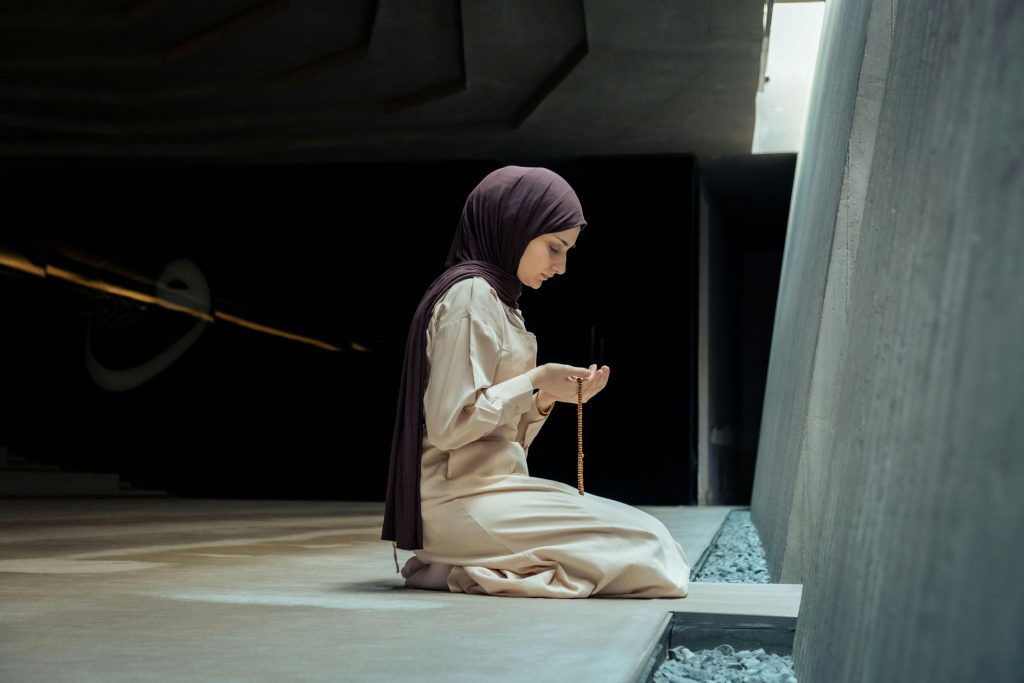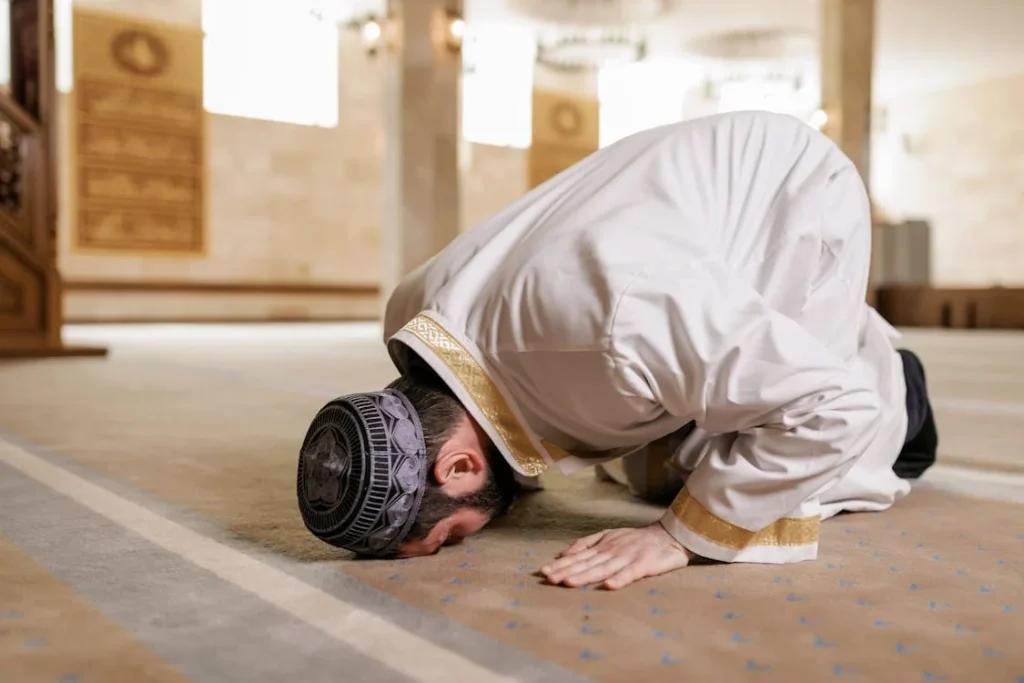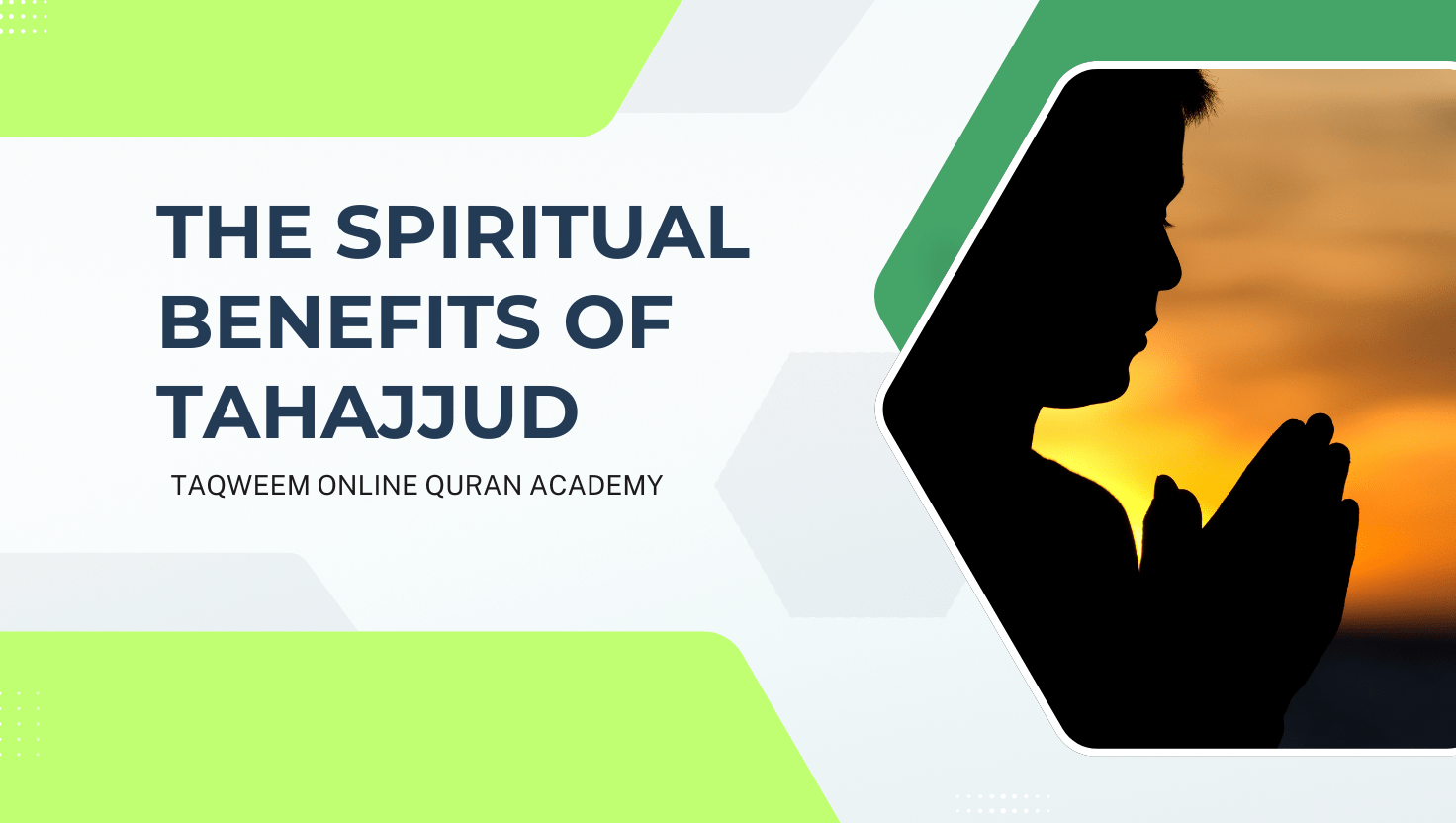Table of Contents
ToggleWhat is Tahajjud?
Tahajjud is the special night prayer that Muslims perform after waking up from sleep. Unlike the five daily prayers, it’s not obligatory, but it carries immense rewards. It’s often called the prayer of the pious because it’s performed when the world is silent, and only those who truly seek closeness to Allah rise from their rest to stand in worship.
The Spiritual Benefits of Tahajjud
I’ll tell you something honest: I felt closest to Allah not during Ramadan, not at Friday prayers, not even on Eid — but in Tahajjud. There’s something about that stillness at 3 or 4 AM that makes you believe He’s right there.
The Qur’an says:
“And during the night pray Tahajjud, an extra prayer for you. It may be that your Lord will raise you to a station of praise.” (Quran 17:79)
And honestly? That verse feels true. Tahajjud lifts you. It doesn’t just raise your rank in the Hereafter; it lifts your heart here too.
The Emotional Benefits of Tahajjud
We all carry heartbreaks that no one sees. For me, Tahajjud became a place to drop that weight. I remember crying in sujood, not even knowing what words to say, just tears spilling. And I felt lighter afterward.
Problems didn’t vanish overnight. But my chest didn’t feel as tight. My head didn’t feel as heavy. That’s one of the quiet miracles of Tahajjud — it comforts a broken heart in ways no friend, no family member, no therapist fully can.

The Mental Benefits of Tahajjud
Life today feels… loud. Always buzzing. Work. Bills. Phones. Notifications.
But in Tahajjud, all that noise disappears. For once, your mind isn’t racing. You can actually hear your own thoughts. And when you recite Qur’an in that silence, it feels like it was written just for you.
That clarity, that focus — it spills into the rest of your day. You wake up sharper, calmer, less rushed.
The Physical Benefits of Tahajjud
Waking up in the last part of the night is tough, no lie. But your body adjusts. It builds discipline. And funny enough, the sajdah itself… it feels like a release. You bow, you place your forehead on the ground, and suddenly tension leaves your shoulders, your chest.
Even science says waking before dawn resets your body. But for me, it’s less about science, more about soul.
Tahajjud and Forgiveness
One hadith changed the way I think about these nights. The Prophet ﷺ said:
“Our Lord descends to the lowest heaven during the last third of the night, asking: ‘Who is calling upon Me so I may answer him? Who is asking Me so I may give him? Who is seeking forgiveness so I may forgive him?’” (Bukhari, Muslim)
Think about that for a second. Every single night, forgiveness is literally waiting. Allah is asking us to ask. All we have to do is show up.
Consistency in Tahajjud
I won’t lie — I’m not always consistent. Sometimes I sleep through. Sometimes I wake up and tell myself I’ll pray… but then crawl back into bed.
But I’ve learned: even two rak‘ahs matter. Even ten minutes before Fajr counts. It’s not about how long you stand. It’s about showing Allah you’re trying.
How Tahajjud Benefits Changed My Days
This is the part I didn’t expect. Tahajjud isn’t just a night prayer. It bleeds into the daytime.
-
I found myself more patient in traffic.
-
I stopped overreacting to little things.
-
I trusted Allah with the stuff I couldn’t control.
-
And I carried this quiet strength that I didn’t have before.
It’s almost like the night gives you fuel for the day.

My Final Reflection
Maybe you’re reading this and thinking: “It sounds beautiful, but I can’t do it. I’ve tried. I just sleep through.”
And I get it. I’ve failed more times than I’ve succeeded. But the beauty of Tahajjud is… Allah doesn’t expect perfection. He loves the effort. Even if you wake up one night out of ten, even if you whisper just a single du’a half-asleep, it matters.
Start small. Set an alarm. Pray two rak‘ahs. See how it feels. You might just find, like I did, that those quiet minutes become the most powerful part of your life.
A Gentle Invitation
If you’ve been longing to connect deeper with the Qur’an and Sunnah, Tahajjud is one way — but learning properly is another. Taqweem Academy makes that journey easier, with kind teachers who guide you step by step.
If you want to fall in love with your faith again, check out Taqweem Academy. Sometimes all we need is someone to walk with us on the path.
FAQs
Why is Tahajjud so powerful?
Tahajjud is considered powerful because it’s prayed in the quiet hours of the night when distractions are fewer. According to Hadith, Allah descends to the lowest heaven in the last third of the night, making it a special time for answered duas.
What is the miracle of Tahajjud?
The miracle of Tahajjud lies in its ability to transform one’s heart, increase closeness to Allah, and bring peace and guidance. Many believers report life-changing outcomes through consistent night prayer.
How did Tahajjud change my life?
Many people share that regular Tahajjud helped them overcome anxiety, gain spiritual clarity, and witness answered prayers in unexpected ways. It builds patience, discipline, and a deep sense of reliance on Allah.
What happens if you pray Tahajjud for 40 days?
Praying Tahajjud consistently for 40 days strengthens faith, builds a powerful habit, and often brings remarkable inner peace. Some narrations mention that continuous worship like this can open doors of rizq (sustenance) and barakah (blessings).
What are the benefits of Tahajjud according to Hadith?
Hadith literature highlights that Tahajjud brings a person closer to Allah, erases sins, and raises one’s status. It’s described as the best prayer after the obligatory ones.
How do you pray Tahajjud step by step?
Tahajjud is prayed after Isha and before Fajr. A Muslim should make the intention, pray at least 2 rakats (though up to 8 or more can be prayed), and sincerely make dua after.
What is the dua of Tahajjud?
The Prophet ﷺ taught a special dua in Tahajjud that praises Allah’s majesty, acknowledges His blessings, and seeks forgiveness, mercy, and guidance. Believers may also make personal duas during this time.
What are the benefits of Tahajjud in daily life?
Tahajjud strengthens faith, brings mental calmness, helps in achieving goals through dua, and deepens one’s connection with Allah. It’s also known to bring barakah in work, studies, and personal matters.






